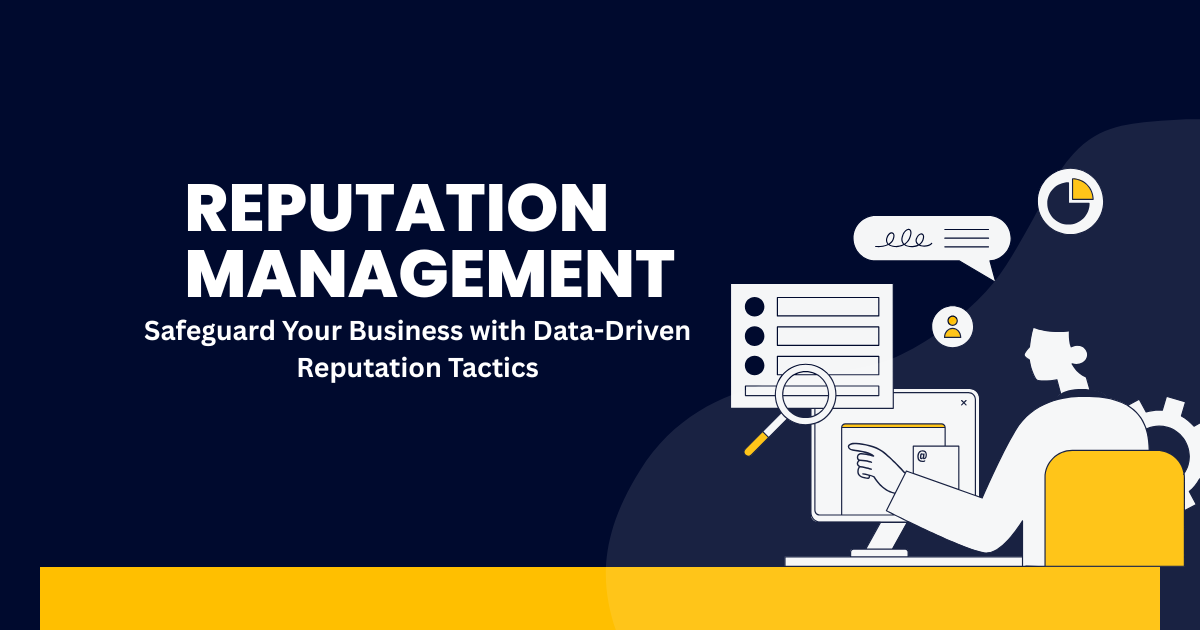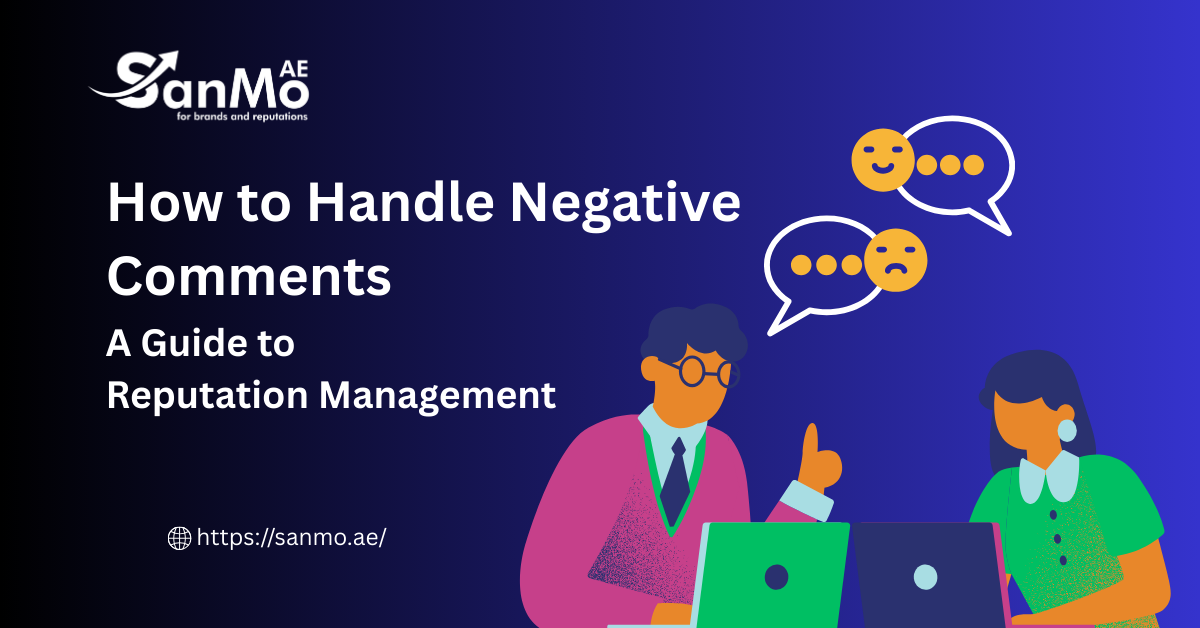“Your reputation isn’t just the talk about you, it’s the trust, credibility, and growth in opportunity people are willing to give you.”
And during a time when one tweet, review, or shared story can be viral in just minutes, advanced reputation management has never been more crucial.
This blog delves into the rapidly changing world of reputation management, best practices for strengthening your online profile and tips for responding to reputation mishaps. At the end, you’ll be given a blueprint for solving reputation challenges for your brand, based on today’s real-world examples and insights into the challenges of tomorrow.
The Concept of Online Reputation
What is Online Reputation?
Online reputation is how you are viewed digitally. This might be social media conversations, search engine listings, reviews from places like Google or Yelp, earned media, any customer testimonials, etc.
It’s all about perception and in some ways, perception is all there is. Since 91% of consumers consult an online review before making a purchase decision, your reputation plays a large role in purchasing behavior.
Why Does It Matter?
Good online reputation boosts credibility, draws in prospective clients and provides a window for collaborations. Conversely, a bad reputation can be the factor in lost orders, negative public relations and long-term harm to your business relationships.
Proactive Reputation Management Tactics
Foster a Positive Online Reputation
Begin to develop a strong reputation now by being proactive in building your digital footprint. Here’s how to do it:
-
Website Excellence – Build a professional and user-friendly website that serves as your online storefront.
-
Own Your Story – Use an “About Us” page and blog posts to tell a compelling brand story. Say who you are and why you matter to the world.
-
Consistency is Key – What you present in terms of your branding, imagery and perhaps even tone in writing on any platform should be the same to encourage your online identity.
The Role of Content Marketing
Online reputation is a content marketing powerhouse. Share content that is useful and genuine that suits your audience’s interests:
-
Thought Leadership – Write blogs, whitepapers or commentaries and establish yourself as a subject matter expert.
-
Social Proof – Post away with testimonials, case studies and user-generated content to up trust.
-
Get Creative – Don’t underestimate the branding potential of a great video, infographic and podcast.
Keeping an Eye on Your Internet Reputation
Brand Mention Tracking Tools
Step One in the process of success in reputation management is to know what is being said about you. Use tools like:
-
Google Alerts (free) – Monitors your brand or keywords on the web.
-
Brand24 or Mention (both paid) – Powerful tools for monitoring conversations about your brand.
-
Hootsuite Insights (paid) – This tool boasts a comprehensive, robust media monitoring feature that combines social listening with traditional monitoring, giving you complete insight into what your brand’s media presence looks like.
Social Listening
Social listening is more than just monitoring mentions – it’s about understanding the sentiment behind public conversations. For example:
-
Is there a buzz about your service? Amplify that: Get that out, get more traction.
-
Are there general gripes or gripes? Deal with them without delay to show that you are serious about making changes.
Reactive Strategies
Addressing Negative Reviews
“Negative reviews are going to happen, but they don’t have to wash out your reputation if you handle them promptly and professionally,” he said.
-
Admit the problem – Provide a fast empathic response and let them know you’re prepared to tackle the problem.
-
Presentation of Solutions – Offer to replace the product, refund the purchase price, or grant further assistance re the customer’s experience.
-
Moving on Down the Road – I’m sorry — Please contact the reviewer to let him know you are taking his comments under advisement and are taking action.
Crisis Communication
The true crucible of an advanced reputation management challenge is during a crisis. Here are the important steps to take when things go south:
-
Assess the Situation – Sudbury Hill, being aware of the extent and context of the issue, before you express your reaction.
-
No Such Thing As Too Much Transparency – Be as transparent as reasonably can about what happened, what went wrong, and how you’re going to fix it.
-
Prepare – Develop a crisis communication plan now so you can respond quickly if necessary.
Techniques for Reputation Management
SEO for Reputation Management
Search Engine Optimization (SEO) doesn’t just make you rank higher when people search, it also puts the right narratives in front of people.
-
Optimize Positive Content – Make sure your most valuable content (such as testimonials, case studies or feature articles), rank well for these phrases by optimizing them with targeted keywords.
-
Suppress Negatives – Develop new, positive content that is keyword-optimized for the keywords that are showing in the negative links. That can gradually drive undesirable content further into search results.
Legal Recourse
In case of especially harmful assaults, like accusations posted online, legal action can be an alternative.
-
Counter-claim – Identify and work on your case with a legal team to spam baseless claims or require their removal with a cease-and-desist or takedown notice.
As a side note, legal action is always a last resort. It tends to bring in even more negative attention.
The Next Generation of Reputation Management
This space is moving very quickly now with emerging technologies and trends:
-
Insights Powered by AI – Using AI technology — such as tools like ChatGPT or Sprinklr — brands are able to understand what’s being said about their organization faster and deeper than ever.
-
Deepfake Detection – As manipulated digital content continues to increase, so do tools for authenticating it.
-
Blockchain – Tiny blockchain identification tokens could be used to verify product reviews, and the tech may be used to help combat fake news.
To stay ahead, you’ll need to be ready to adapt to these developments to preserve your reputation in new, strange worlds.
You Can Begin to Manage Your Reputation Today
Reputation doesn’t just occur; it is constantly built, intentionally maintained, and vigorously defended. For both an international conglomerates or single local brand, advanced reputation management is a must to have.
Begin today by considering your proactive content, your reactive strategies, and your next level tools. Get even more help and expert tips by signing up for our newsletter!







